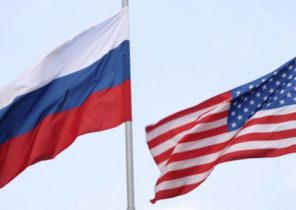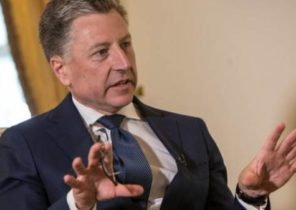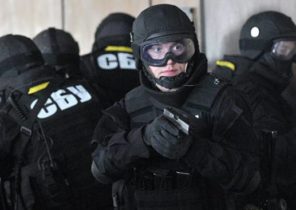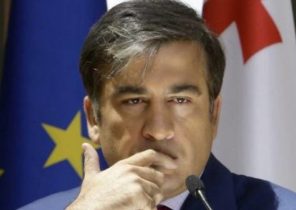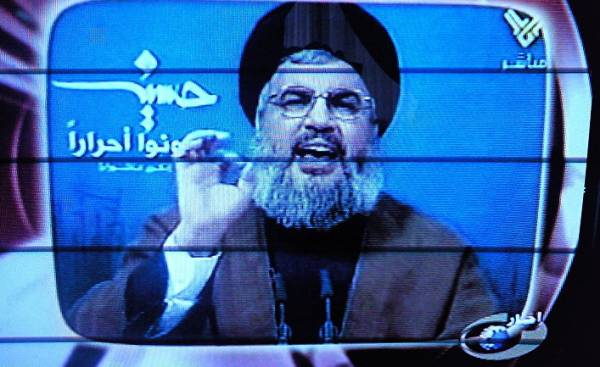
Iran finally reached the shores of the Mediterranean sea, occupying the district by district Shiite and Kurdish militia forces. For the first time since the Second World war he is fighting on many fronts.
Iran has received a new path. It extends across the Iraqi desert through the so-called “Sunni triangle” and comes to the Syrian desert. After it reaches Damascus and on to the shores of the Mediterranean, avoiding the Latakia and Beirut.
The Project “Dervish”
Military, political, economic and informational forces of Iran did everything possible to save the project, which was on the verge of collapse due to the uprising in Syria. After lengthy negotiations, a huge effort and cost several billion dollars and more than ten thousand soldiers working on him, finally, the development of this plan is on the final or penultimate final stage. The project involves creating an alignment between Iran and the Mediterranean sea through Iraq and Syria.
The path passes through Iraq, then through the areas occupied by separatist Kurdish militias in Syria, then the regions under the control of the Syrian government. A large part of this path runs through the stronghold of the Sunnis. Iran, in turn, tries to drive Sunnis from the area, so it took the Kurds and Shiites.
This project can be seen as a fait accompli. The government of Iran is aware that there are global changes, not leaving the region party. Iran has changed the vector of its movement to the conflict in Syria and Iraq, having gone by the wayside. However, if people need help, Iran will respond quickly. It is an “ideological alternative” to the Sunni majority in the region, as well as the force that is able to perform the dirty work in the region. It seems that both the Americans and Russians believe the Kurdish militia a good investment, but they also understand the difference between them and Shiite groups, especially in regard to the irregularity of human losses. That’s why I need ongoing support, and long-term investments in this region require massive efforts.
Until recently, Iran has become a regional power, which relied on America to fill the vacuum created after the withdrawal of troops from Iraq, handing him “powers” in control of Iraq, Syria, and Libya. After all, between them there is a secret Alliance, which brings together a common goal — the establishment of control over the Arabian Peninsula, the Levant and Iraq. According to the agreement Iran initiated the war with Iraq in the 80-ies of the last century, and after the American invasion began to manage them.
Iran is an ally and obedient servant to the West — “party credible”. Despite its “huge” military power, the ability of religious mobilization, in fact it can’t compete, and especially to go to war with any one, even a minimally developed technical indicators of the country.
Now the situation has changed. Gradually Iran is aware of his new position. He is ready to establish hegemony in the region.
Currently, Iran is forced to share everything with the Kurds and Russians that America has allowed to improve its position and increase its influence in the region. Moreover, he is not the leading force neither in Aleppo, nor the Levant, nor on the coast, even in the North and East of Syria. However, Iran is a force controlling the overall situation, and that’s why he was forced to compromise with all parties trying to “grab” your piece of the pie in Syria.
The Assad regime has benefited from cooperation with the Russians, reducing Iranian influence in the coastal Alawite areas in Latakia and Tartus. In addition, he was able to somehow reduce the Iranian influence. Russian can not fully accept the Iranians because of their loyalty to the United States. However, they are forced to cooperate with them, not to introduce and not to use its ground forces. Russia under Putin is not the Soviet Union, which could easily afford to bear the huge loss of life.
Religious Iraqi sweep
For paving of the way Iran has extended its influence in their before the war the Syrian territories. An example is Aleppo, in which Iran made a huge demographic change. With this operation, he left the empty areas through which the line passes “demographic threat”, which may occur in the future and the threat of war. Basically, the resettlement is concentrated in urban areas. They are trying to avoid, to the extent possible, the desert and uninhabited areas. Due to the fact that this route passes through the settlements of Shiites in the urban centers, Iran may feel fully protected.
Even the best defense of Iran does not mean its safety in case of any operations, ambushes or attempts to reduce the territory in the result of military operations or guerrilla wars. Moreover, it does not guarantee to gain influence in the regions inhabited by the Shiite group, and does not encourage their residents to adopt a different ideology. The path will pass through a huge number of items, specializing in various goods, from oil to drugs and slaves to be imported from the West through Lebanon. At the same time, this way the region will receive weapons from Iran, which he will sell with the aim of spreading its influence. Iran will try to turn the area into a “corridor” through which freely will to do drugs, prostitutes, human organs, weapons, slaves and refugees. All this turns into money for the Treasury “Vilayat al-Faqih” (the Shiite political-legal doctrine — approx. ed.) and will promote further migration of Shiites across that way.
As for oil, the question of Iran will use the pipeline running parallel to the Iraqi pipes, with the aim of accelerating exports of its oil. That is why he will continue to put pressure on the Gulf countries, because they export oil to Europe faster and at lower prices (in addition to pecuniary speculation on the part of Iran). However, now these countries are experiencing the economic crisis, which, according to experts, will be enough lingering phenomenon.
It should be noted that Iran has chosen the longest, but at the same time, the safest way, especially with regard to desert areas in Syria and Iraq, where over the next two decades will be felt the presence of ISIS (banned in Russia — approx. ed.) or military units that are not going to leave here. After the capture of Mosul, Raqqa (it may take more than two years) and Deir ez-Zor it was there that the last war. Perhaps the withdrawal of Iranian troops from Palmyra ambiguous, and the real goal is to continue its grip and control, as well as the destruction of the enclaves of Bashar al-Assad, as Han (a town about 10 km North of Aleppo — approx. ed.) and military airport is still under control of Assad.
Great the devil and the Vilayat al-Faqih
Iran is counting on this overland route that would connect the entire Shiite Crescent. She fully supports the project spread Iranian ideology and military operations against those who think this way risk. Iran derive maximum benefit from cooperation with China and Russia and with the West, which gave him full freedom to work in Iraq for an indefinite period.
Process of Iranian expansion in the region is fully appreciated by the West, which believes Iran is a major player contributing to the spread of Western strategies to change the region. So, Iran used the obsession with vengeance to the West, on the contrary having achieved unprecedented economic, political and military benefits for the West.
Terraria Iran goes all the way to the Mediterranean sea. Moreover, historically, it has military, strategic and ideological influence since the time of Darius I, who created the project, whose goal was to dominate the Mediterranean and Egypt. However, his dream collapsed in the historic “Turkey.”
Strategic tragedy
Iran has succeeded in carrying his project, and it is a strategic catastrophe for the region at all levels. The success of Iran on the first level gives him the opportunity to move or at least to prepare for the second phase, the purpose of which is to establish control over the Persian Gulf.
The second phase of the plan involves the economic exhaustion of the Persian Gulf countries, weakening their control over oil prices and capture the market. Moreover Iran is seeking to spread its ideology in Egypt and Algeria, and Turkey is a strong ally of the Sunni world. Iran also intends to increase its demographic presence of Shiites in the region, which implies an increase of the number of fighters in the territory around the Persian Gulf.
In addition, Iran will use this project in order to limit Turkish influence in the Arab countries, as well as to provide economic, political and military pressure on Turkey. All these actions will contribute to the improvement of the economic situation of the Kurdish militias and the increase in exports of oil, stolen from the North of Syria and transported across the sea. These steps will allow us to threaten Turkey, by financing projects aimed against her the stolen Syrian money.
The war in the West
Hitler was asked about the cause of its rapid invasion and occupation of France during the Second World war: he was given just a few weeks. He said, at the moment when the French were busy measuring the volume of female hips, we measured the diameter of the gun barrel.
It seems that this phrase fully describes the situation now occurring in the region. Occurs an ideological conflict in which there is no room for two winners. The winner eliminates the loser on all levels: economic, military and human. Another distinctive feature of this conflict is that, despite its obviousness and openness, only one side really works to win Iran. The Iranians are willing to make a deal with any “devil” just to achieve their goal. Friendly alliances stretched across the region, including even armed groups from East Asia, Afghanistan, Syria, Iraq, Yemen, Lebanon, the Gulf countries, Egypt, and even Venezuela, China and North Korea. Iran concluded an Alliance with great devil Israel, as well as with several States, through which he gets the technique of “dual-use” through illegal corridors. For example, the technology of manufacturing of drones, which he uses after the war in the middle East. Given the so-called “Irangate” that occurred in the mid 80-ies of XX century (the scandal erupted when it became known that some members of the U.S. administration organized secret arms shipments to Iran, thereby violating the arms embargo against the country — approx. ed.), what is happening currently is just a drop in the sea of mutual love between the Great devil and the Vilayat al-Faqih.
Iran is currently doing everything to control the area from Tehran to Beirut. It should be noted that such a policy was conducted from the beginning of “the reign of the mullahs”, when in Iran from France, Khomeini returned and led the anti-Western “revolution”.
For a long time, Iran has worked to get to this vital artery. If not a long-term sponsorship of Shiite militias in Syria, Lebanon, Iraq and Yemen from the beginning of 80-ies and investing in the defense sector, the military industry (despite its low technical level), and the nuclear-missile potential of the country, Iran would never have been able to achieve this level.
Iran is implementing a major project, he has a clear strategy and plan. Had it not been for the revolution in Syria, Iran could now control virtually the whole of Syria, and would have an advantageous position in Yemen and the Persian Gulf. All this in addition to control over Lebanon, investing in Africa and many other countries, to entice them to his side under the noses of all the major powers.
The best example here can serve us military bases in Iraq and Northern Syria. America has built them only a few dozen kilometers from the settlement of the Afghan and Iranian militias in Northern Syria, and were also able to build strategic cooperation with Hezbollah in the fight against insurgents in some border areas of Syria and Lebanon.
Measuring hips
There is another side to this conflict. After stabilizing its position in the region, Iran plans to gain a foothold in the Persian Gulf, and later in Egypt, with Jordan.
These countries have completely failed in his plan for cooperation with Iran, despite the open and friendly statements during the eight-year Iran-Iraq war. When some time had managed to contain “the regime of the mullahs”, the Gulf countries immediately made against Iraq, handing it to America, which in turn gave it to Iran.
Within a decade of the armistice of the Gulf countries did not take any strategic actions that would help fill in the gaps and the void created after the fall of Iraq, and to counter the existing threat from Iran, who was preparing for another fight on all fronts.
Iranian investments in military, political, economic, ideological, and strategic levels clearly traced from the middle 90-x years in Lebanon and become obvious after the fall of Baghdad (not without the help of America).
After the establishment of American control and transfer of the Iraqi problem into the hands of Iran has not taken any strategic operation, which would allow to expedite the establishment of Iranian missile and nuclear facilities, and strengthen the Shiite militia, who extended their hands to the Persian Gulf.
With the beginning of the “Arab spring”, the response was negative, as they were afraid of the beginning of this event they have, although fear was not justified. The Gulf countries are faced with a new problem in Bahrain. Iran tried to use the “Arab spring” to establish control over him, however, the plan failed (the majority of Bahrain’s Shia, while the government is Sunni dynasty — approx. ed.).
Even after the conclusion of the Gulf countries and transactions for the supply of more modern, powerful weapons from the West, their army is no threat to the Iranian and Iraqi militias. This is due to their doctrine on defense. Countries have no experience of using various types of guns, and they have no political will to fight.
Moreover Iran has several “wasp nests” that can “explode” and lead to the occupation of entire cities. In the event of war with Iran or Iraq are “nests” will start its activities in Bahrain and Kuwait and will use all the weapons that they only have.
In addition, Gulf countries have not taken any action in order to weaken Iran in military and strategic terms, as well as to Deplete his forces in Syria. On the contrary, they helped militia during fighting against ISIL, and Iran, in turn, condemned them for it.
What is the strategic failure? Gulf countries depend on the assistance and protection of the West, who wasted no time, draining their oil and financial resources. It seems that all the help will stop, because it would be impossible to cover the costs of the West to protect them. All this will lead to complete openness and vulnerability of these countries to Iran, which will be able to reach the Mediterranean sea with the support of the “enemy”.
